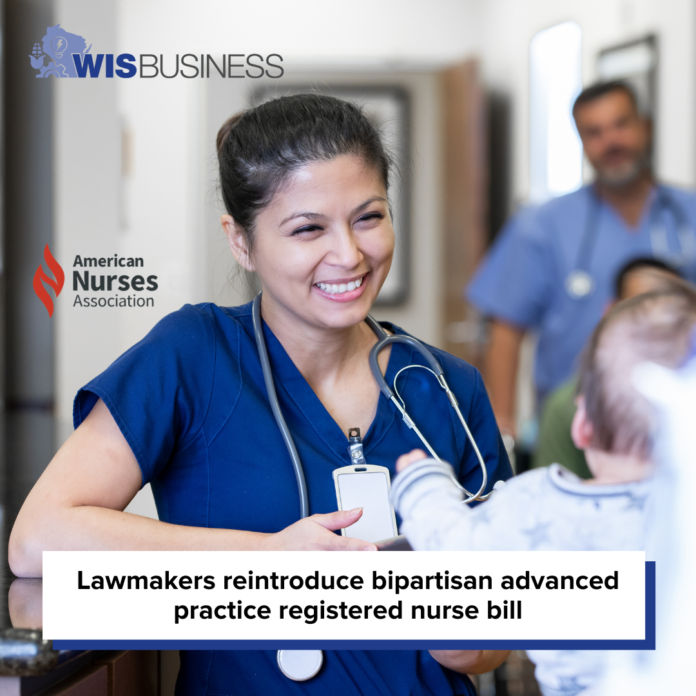Lawmakers are reintroducing a bipartisan bill they say would help the state’s health care workforce by changing regulations for advanced practice registered nurses.
The APRN Modernization Act was highlighted yesterday during a news conference at the state Capitol, where both Dems and GOP legislators expressed confidence in getting the bill signed into law.
The legislation authorizes registered nurses in the state to practice independently, without needing a collaborative agreement with a doctor, according to an overview from the office of Sen. Patrick Testin, R-Stevens Point. He noted many nurses in the state have been calling for this change in some form for “the better part of a decade and a half” and 27 other states have enacted similar laws.
Testin pointed to “dire” workforce problems for frontline health care in Wisconsin, noting both red and blue states across the country have moved to free up APRNs to provide more patient care in this way. He added no state that has enacted “full scope authority” for these nurses has moved back to the more restrictive model.
“By empowering our APRNs to operate at the highest scope of their practice, there is no question that they’re going to stand up and deliver top-quality health care for the patients in every corner of the state, especially in our rural and underserved areas,” he said.
He praised the Dem lawmakers that joined him for the press conference for having “worked tirelessly” to get the bill over the finish line, adding “we have a deal in place” with Gov. Tony Evers that he will sign the legislation into law if it makes it to his desk.
Sen. Kelsa Roys, D-Madison, yesterday said “it’s great to be part of something bipartisan in the Capitol” as she touted the bill.
“We know that too many Wisconsinites in every part of the state struggle to access affordable, high-quality health care, and that’s really what this is about,” she said. “That’s why we were all able to come together, because we believe that every person in Wisconsin deserves that high-quality health care.”
She said APRNs provide “excellent, high-quality health care” and the bill would allow them to provide that care to even more patients.
Meanwhile, Rep. Lisa Subeck, D-Madison, said “we all agree” that nurses should be able to practice at the top of the scope for their profession. And Sen. Rachel Cabral-Guevara, R-Appleton, referenced her own background as a registered nurse and said she looks forward to getting the bill through committee this month and over to the Assembly.
When asked what it took to get Evers’ support for the bill, Testin said disagreements on previous iterations of the bill related to the number of years required before an APRN could practice independently without a collaborative agreement with a doctor. After conversations with “many stakeholders up here,” bill authors settled on four years, which Testin called “a step in the right direction.”
Plus, he said authors added language to the bill to give the state’s Medical Examining Board “a little bit more teeth” and options for enforcement when someone is making false claims. He also said a provision in the bill would allow nurse anesthetists that practice in critical access hospitals without an anesthesiologist to “continue to provide those services” related to pain management.
Testin said even “after a lot of give and take,” not everyone involved is completely happy with the final product but that means “we landed somewhere in a good spot.”
Watch the news conference at WisconsinEye.







